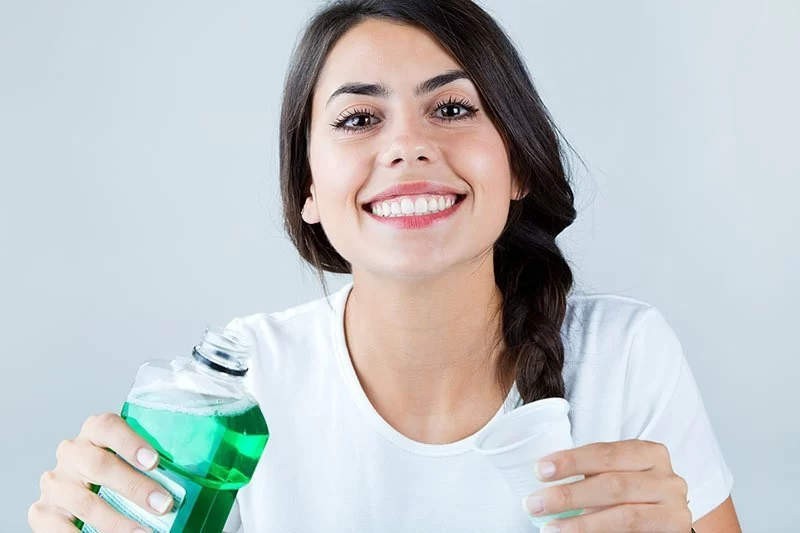
Causes of Tooth Enamel Erosion and How to Stop It: A Comprehensive Guide
- Understanding Tooth Enamel Erosion
- Main Causes of Enamel Erosion
- Effective Ways to Prevent Tooth Enamel Erosion
- Oral Hygiene and Enamel Care Tips
- When to Visit a Dentist About Enamel Erosion
Understanding Tooth Enamel Erosion
Tooth enamel is the hard, protective outer layer of your teeth, and it serves as a barrier against cavities, sensitivity, and other dental problems. However, unlike other tissues in your body, enamel doesn't regenerate once it's gone. This makes protecting your enamel from erosion crucial to maintaining strong, healthy teeth for life.
Enamel erosion occurs when the protective layer of the teeth begins to wear away, often due to acids from food, beverages, or even certain lifestyle habits. As enamel thins, it can lead to increased tooth sensitivity, discoloration, and a greater risk of cavities. Preventing enamel erosion involves understanding its causes and taking proactive measures to safeguard your teeth.
Main Causes of Enamel Erosion
There are several key factors that contribute to the erosion of tooth enamel. Identifying these causes can help you take steps to minimize the damage:
1. Acidic Foods and Drinks – Consuming foods and beverages high in acid, such as citrus fruits, soda, wine, and vinegar-based dressings, can weaken tooth enamel. The acid attacks the enamel, causing it to break down over time. If you're a fan of these foods, it’s important to rinse your mouth with water after consuming them.
2. Poor Oral Hygiene – Inadequate brushing and flossing can lead to plaque buildup, which harbors bacteria that produce acids. These acids can gradually erode the enamel. Failing to brush or floss properly can also result in gum recession, exposing the more vulnerable root surface of the teeth.
3. Teeth Grinding (Bruxism) – Grinding your teeth, especially during sleep, puts excessive pressure on the enamel and can lead to its premature wear. Over time, this wear can lead to cracks or chips in the teeth, exposing the sensitive inner layers.
4. Dry Mouth – Saliva helps neutralize acids in the mouth and provides essential minerals that support enamel. Dry mouth (xerostomia), which can be caused by medications or other health conditions, reduces the amount of saliva available and increases the risk of enamel erosion.
5. Acid Reflux and GERD – Acid reflux disease and gastroesophageal reflux disease (GERD) can cause stomach acids to flow back into the mouth, leading to enamel erosion. Individuals with GERD often experience enamel erosion on the back teeth due to the acids in the mouth.
Being aware of these causes can help you make informed decisions about your diet, lifestyle, and oral care habits to protect your enamel.
Effective Ways to Prevent Tooth Enamel Erosion
While tooth enamel cannot regenerate, there are several steps you can take to prevent further erosion and protect your teeth:
1. Minimize Acidic Foods and Drinks – Limiting the intake of acidic foods and beverages is one of the most effective ways to prevent enamel erosion. If you do consume acidic items, try to rinse your mouth with water afterward or chew sugar-free gum to stimulate saliva production.
2. Use a Soft-Bristled Toothbrush – Brushing with a hard-bristled toothbrush can contribute to enamel wear. Opt for a soft-bristled toothbrush and brush gently, ensuring you reach all areas of your mouth without putting undue pressure on your teeth.
3. Avoid Brushing Immediately After Eating – After consuming acidic foods or drinks, it’s advisable to wait at least 30 minutes before brushing your teeth. Brushing immediately after exposure to acids can spread the acid across your teeth and exacerbate erosion.
4. Use Fluoride Toothpaste – Fluoride helps to remineralize weakened enamel and protects it from further acid damage. Be sure to use toothpaste with fluoride to strengthen your enamel and maintain overall dental health.
5. Wear a Mouthguard for Teeth Grinding – If you grind your teeth at night, wearing a custom mouthguard can prevent excessive wear and tear on your enamel. Consult with your dentist about getting a mouthguard designed for bruxism.
6. Stay Hydrated – Drinking plenty of water throughout the day can help keep your mouth hydrated and promote the production of saliva, which is essential for neutralizing acids and protecting your enamel.
By adopting these practices, you can significantly reduce the risk of enamel erosion and protect your teeth from further damage.
Oral Hygiene and Enamel Care Tips
In addition to the preventive measures listed above, maintaining a solid oral hygiene routine is essential for protecting your enamel. Here are a few additional tips:
1. Brush Twice a Day – Brushing your teeth twice a day, especially with fluoride toothpaste, helps remove plaque and bacteria that contribute to enamel erosion. Don't forget to brush your tongue and the roof of your mouth to remove additional bacteria.
2. Floss Daily – Flossing is crucial for removing food particles and plaque between your teeth. Without it, bacteria can build up in these hard-to-reach areas, leading to enamel breakdown.
3. Regular Dental Checkups – Visit your dentist regularly for professional cleanings and checkups. They can spot early signs of enamel erosion and help you take action before it becomes more severe.
Incorporating these enamel care tips into your daily routine will go a long way in maintaining the health of your teeth and protecting your enamel from further erosion.
When to Visit a Dentist About Enamel Erosion
If you notice symptoms of tooth enamel erosion, such as increased sensitivity to hot or cold foods, discoloration, or visible damage to the teeth, it’s important to consult with a dentist as soon as possible. Early intervention can help prevent more serious issues like cavities or tooth decay.
Your dentist may recommend treatments like fluoride varnishes or dental bonding to restore the enamel's protective properties and reduce sensitivity.
For more information on enamel care and to find the best products for protecting your teeth, visit [Dentistry Toothtruth](https://familydentistryonline.net) today. Protect your smile and keep your enamel strong!







 Contemporary Dentistry4.0 (46 review)
Contemporary Dentistry4.0 (46 review) Richmond Pediatric Dentistry and Orthodontics4.0 (53 review)
Richmond Pediatric Dentistry and Orthodontics4.0 (53 review) Dr. Maha Blaibel, DDS5.0 (6 review)
Dr. Maha Blaibel, DDS5.0 (6 review) Lawndale Christian Health Center Dental Clinic2.0 (34 review)
Lawndale Christian Health Center Dental Clinic2.0 (34 review) Dentists of South Pasadena4.0 (124 review)
Dentists of South Pasadena4.0 (124 review) Shiney Smiles Orthodontics5.0 (165 review)
Shiney Smiles Orthodontics5.0 (165 review) The Importance of Oral Health Education During Pregnancy for a Healthy Pregnancy
The Importance of Oral Health Education During Pregnancy for a Healthy Pregnancy Best Tips for Brushing Your Teeth Properly for Healthy Gums: Essential Techniques for Oral Health
Best Tips for Brushing Your Teeth Properly for Healthy Gums: Essential Techniques for Oral Health Why Skipping Dental Checkups Can Lead to Bigger Oral Health Problems
Why Skipping Dental Checkups Can Lead to Bigger Oral Health Problems Advantages of Porcelain Dental Restorations
Advantages of Porcelain Dental Restorations How Can Diabetes Cause Tooth and Gum Problems? Preventing and Managing Oral Health Issues
How Can Diabetes Cause Tooth and Gum Problems? Preventing and Managing Oral Health Issues Healthy Habits for Promoting Good Oral Health and Hygiene: Tips for a Healthy Smile
Healthy Habits for Promoting Good Oral Health and Hygiene: Tips for a Healthy Smile